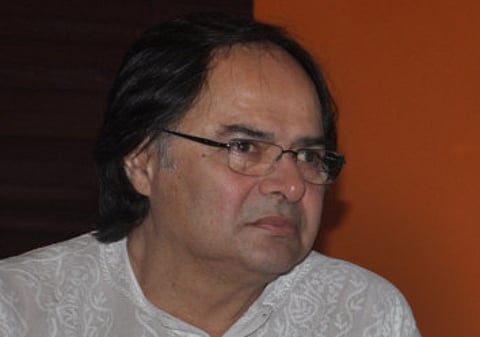Farooque Shaikh: Please be a discerning, demanding audience
Veteran actor feels films are suffering from poor writing and lack of quality lyrics

He may never have been a star but Farooque Shaikh has always been a popular and genuinely good actor who probably peaked during the 1970s and 80s with films such as Shatranj Ke Khiladi (1977), Noorie (1979), Umrao Jaan (1981), Chashme Buddoor (1981), Saath Saath (1982) and Bazaar (1982). His recent releases include last week’s Club 60 and Listen Amaya, films that did not show in the mainstream cinemas, and he is probably remembered as having only been in Ranbir Kapoor May blockbuster Yeh Jawaani Hai Deewani.
“We have to accept that cinema is predominantly a commercial art form,” Shaikh told tabloid! “The budget in films is humongous so anyone who puts in the money would want a substantial return. Similarly a cinema owner who releases a film — whether it be a Farooque Shaikh film or a Shah Rukh Khan film — has to switch on the air conditioning, the electricity... which will cost him. And Mr Shah Rukh Khan or Mr Salman Khan or Mr XYZ will fill far more seats than Farooque Shaikh does. So why would he give Farooque Shaikh priority and time over some one who fills seats quickly?”
Shaikh will host I Am Asha on Friday, December 13 at Dubai World Trade Centre, where he will talk to the legendary singer Asha Bhosle about her life and career.
“First of all, let me tell you I cringe each time people refer to the show as ‘in conversation with Farooque Shaikh’,” he said. “Asha is a legend and I’m nothing next to her. I’m there because she will not speak herself and my duty will be to prompt her.”
Here, he speaks to tabloid! about his life and career.
tabloid!: How have you seen Indian cinema change?
Farooque Shaikh: Technically, it is far, far superior. I’ve seen the advent of a very bright, hard working, ambition-driven generation after mine. Film budgets now are 10 times what we used to work with. The Indian diaspora all over the world that looks at Indian cinema as one of their memory feedback is huge and India being a prominent country, Indian cinema is also finding a place of note in the diaries of non-Indians. These are all very laudable advantages. Where we have lost is in the writing — in terms of thematic content, dialogue content and what you call lyrics. Songs today are just word play because they do not lead to any kind of thought provocation. We have songs where there’s no interest in the word but only in the rhythm, because you are just dancing to noise in the dark and don’t need to really understand what is being said.
t: So are you saying Indian cinema lacks the right audience?
FS: It’s not the audience which is missing, but the opportunity for them. I don’t have too much intelligence, just 40 years of experience in this industry, so I earnestly plead with our viewers to become more discerning and demanding. You are spending precious time and hard-earned money and if you don’t get your money’s worth, please complain, make a noise. If you do that, the quality of cinema will improve immediately. There is a lot of young, very intelligent, educated filmmakers who are very sensitive to world cinema and India. But they lack the kind of limelight that a multi-starrer or major-starrer would get, despite presenting a much better film with unknown faces.
t: Your film Chashme Buddoor was recently remade and failed at the box office. We’ve seen this happen to other remakes of popular films. How do you feel about that?
FS: I don’t think there’s a problem to do a remake of a remake. When you adapt it, you are facing a track record of a film which people identify with. You need to know how you can update and upgrade it. Update, because you are giving it to a different generation, and upgrade, in terms of its engrossing value.
t: With your kind of experience in acting, why are you not a mentor or tutor?
FS: God forbid! No student should be that fortunate. I still have to learn tons and tons myself before I reel it off to someone else.
t: Neither have we seen you in the director’s chair...
FS: I don’t have the patience. I don’t have the brains.
t: You narrate Urdu couplets from memory. Do you write too?
FS: I don’t have an artistic bone in my body. I just happen to be in this profession and wo bhi isliye ki logon ne maar maar ke bhej diya [that too because people have beaten me into submission]. Otherwise I would be sitting at home yawning away.
t: So what would you have been if not an actor?
FS: Probably would be somewhere ruining someone’s life.
Sign up for the Daily Briefing
Get the latest news and updates straight to your inbox

